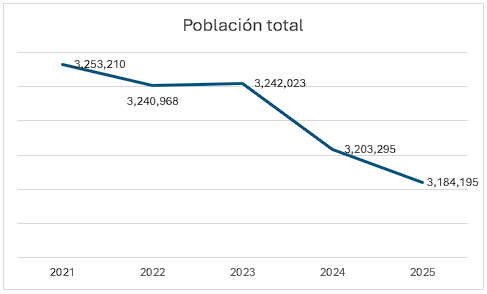Non-farm payroll in Puerto Rico reached a total of 902.3 thousand for the month of February 2022. This statistic is the main measurement of employment both on the island and in the US. Rather than being derived from survey data, this is derived directly from payroll data.
Compared to the previous month of January, non-farm payroll increased by 2.1 thousand, or 0.2%. Compared to February 2021, there was an increase of 47 thousand, or 5.5%. Compared to February 2020, there was an increase of 17.7 thousand, or 2%.

Non-farm payroll has surpassed both the pre-pandemic total and the pre-Hurricane Maria total. The last time that non-farm payroll was above 900,000 was in May 2015.
The subcategories with the largest increases compared to January 2022 were leisure and hospitality (1.1%), manufacturing (0.9%), and retail sales (0.5%). There was a 0.9% reduction in education employment.
| Employment (thousands) | Feb-20 | Feb-21 | Feb-22 | 2021-2022 Change |
| Non-Farm | 884.6 | 855.3 | 902.3 | 5.5% |
| Construction | 27.8 | 28.1 | 30.7 | 9.3% |
| Manufacturing | 75.8 | 75.6 | 81.1 | 7.3% |
| Retail Sales | 125.6 | 123.8 | 132.1 | 6.7% |
| Professional and business services | 124.8 | 124.3 | 133 | 7.0% |
| Education | 33.7 | 29.1 | 31.3 | 7.6% |
| Health | 85.8 | 83.5 | 85.4 | 2.3% |
| Leisure | 81.3 | 71.7 | 84.3 | 17.6% |
| Gov | 198.8 | 196.1 | 194 | -1.1% |
Compared to February 2021, the subcategories with the largest absolute increases were leisure and hospitality (12.6 thousand), professional and business services (8.7 thousand), and retail sales (8.3 thousand). Government is the only major category with a decrease relative to February 2021 (-1.1%).
Compared to February 2020, three employment subcategories have had decreases: education (2.4 thousand, -7.1%), government (4.8 thousand, -2.4%), and health services (0.4 thousand, -0.5%).
Overall, there have been mostly positive tendencies within employment subcategories. Manufacturing and construction, the two strongest performing industries since the beginning of the pandemic, have maintained their growth tendencies. Retail sales and professional and business services, which had lagged behind, have now surpassed their pre-pandemic total. Leisure and hospitality, which had been the major category that had underperformed, has now also surpassed its pre-pandemic total. The only exceptions are health services and education. Employment in these two could lag behind their pre-pandemic total until there is a more definitive end to COVID.
This increase in employment seen in the past few months could be due to several reasons. The increase in the minimum wage from $7.25 to $8.50 could have drawn more people towards employment, as well as the new child tax credit which has recently been implemented on the island. Rising prices could also be a significant factor at play, as they could be forcing more households to stop depending on a single income.








